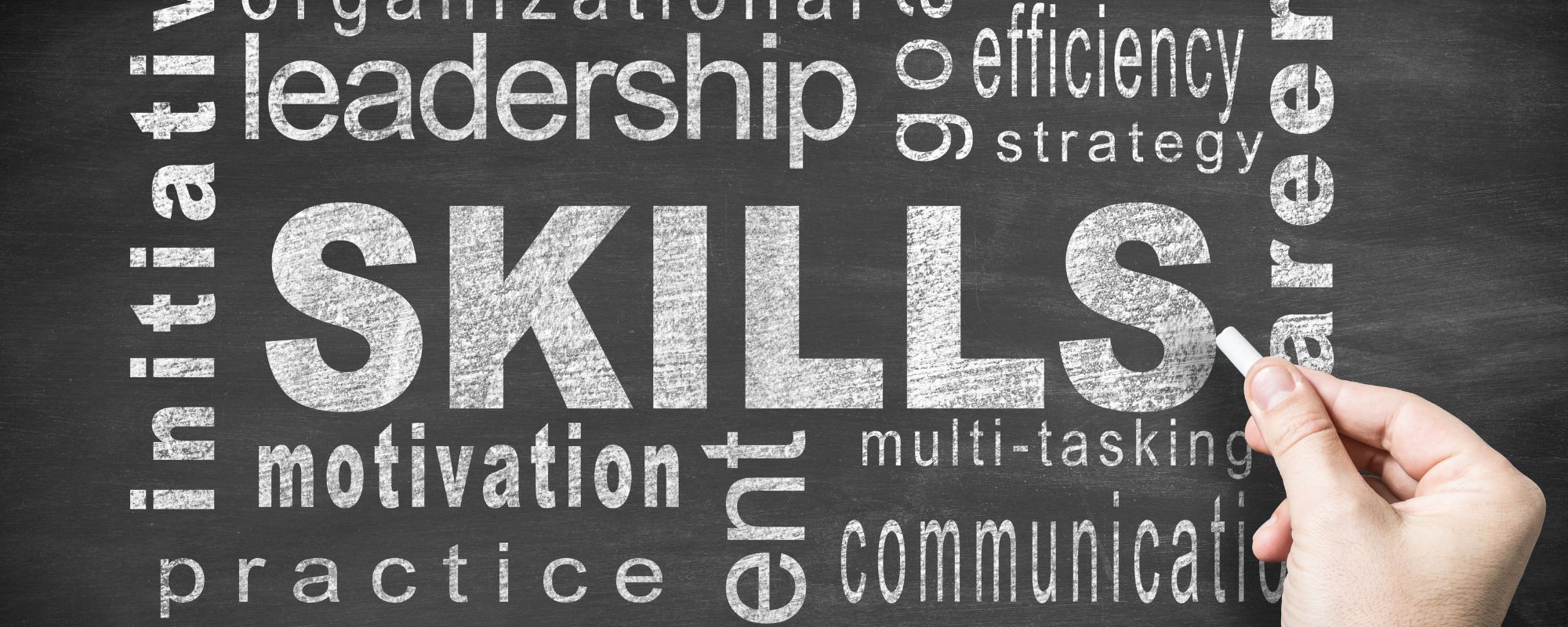There are so many ways to extol the benefits of mental health therapy, but one thing is certain — it’s a powerful, invaluable tool for self-exploration and personal growth. Therapy remains a safe, supportive, non-judgmental space that gives you the chance to recognize and change unhealthy thoughts, emotions, and behaviors, whether you’re suffering from a mental health condition or just need someone to talk to.
Therapy for mental health helps you connect these dots to help you both understand your story, whether you suffer from depression, anxiety, trauma, or other issues. And it’s proven to be effective in more ways than one. According to the American Psychiatric Association (APA), approximately 75% of people in psychotherapy thrive from it, not only boosting one’s mood and emotional well-being but making actual, tangible positive changes neurologically and physically.
One of the real differences that therapy makes is in how you’ll learn skills for mental health. How does mental health skill building happen during therapy, and can it support your recovery in your day-to-day life?
What Is Mental Health Skill Building?
Mental health therapy, whether you’re in individual or group counseling, is based on a simple idea: mental health challenges are very often fueled by learned habits of thinking and reacting. A negative, disordered mindset influences similar feelings and, in response, behaviors.
Therapy is designed to guide you toward seeing those patterns clearly and teaching you healthier, action-oriented strategies to replace them.
For instance, if you’ve been diagnosed with anxiety disorder, your mindset may be one of overthinking and creating worst-case scenarios over ordinary, everyday situations. This can lead to becoming fearful of — and avoiding — those places, accompanied by a host of distressing physical symptoms.
Here’s how action-oriented mental health skill building might unfold as your therapy sessions progress:
- Understanding the root of the problem: You’d begin to look at how anxiety surfaces in your daily life. How long have you felt this way? What situations trigger anxiety? What is your instinctive thinking or reaction in those moments? How does it make you feel physically and emotionally?
- Identifying the anxiety in real time: How can you spot the specific thought patterns that fuel your anxiety — like catastrophizing and jumping to conclusions — and arrest that thinking right when it happens? Your therapist may guide you through a scenario to identify the very moment when anxiety tends to emerge.
- Challenging and reframing your mindset: You’ll be encouraged to look objectively at how your beliefs are disproportionate to the moments that trigger excessive worry. You’ll learn techniques to question their validity and consciously replace them with more realistic perspectives. “By learning to change those thought patterns, (you) can reduce the likelihood and intensity of anxiety symptoms,” notes the APA.
- Rehearsing mental health skills: This is where skill building in therapy takes shape. In the example of anxiety treatment, you’ll work with your therapist on building an actionable toolkit of responses you can call on whenever you’re confronted with an anxiety- or panic-inducing moment — they could be calming techniques like deep breathing, positive affirmations or grounding exercises to keep you present in the moment. (Holistic therapies like mindfulness meditation also help to achieve similar goals.)
- Putting your mental health skills into motion: Coping techniques for mental health need to be practiced in the real world to be effective. The goal is to take what you’ve learned in therapy and approach situations that cause anxiety, know that your fears are unrealistic, and that you can face them with confidence.
How Skill Building Helps
That’s just one example of how you and your therapist might start building a step-by-step mental health skill building template. Look at it as the “how-to” portion of psychotherapy — beyond discussing your symptoms, your fears, your thoughts and insights, success in therapy relies on you making tangible, positive changes, not only internally, but externally in your life.
Once you begin to put them into practice, here’s how your newfound coping techniques for mental health can help:
Managing Mental Health Symptoms
A persistent sense of dread is a symptom of anxiety disorder. Feelings of emotional emptiness accompany depression. Mood swings and manic/depressive phases are inherent to conditions like bipolar or borderline personality disorders. Many of these common symptoms associated with various mental illnesses can be felt so deeply they almost seem ingrained and unshakable — but in reality, they’re just temporary states of mind and being that can be healed through therapy.
Mental health skill-building enables you to take control of these symptoms and, even if you have a recurrence of symptoms on a bad day, knowing coping techniques for mental health allows you to minimize their impact and accept that they don’t define you as a person.
Improving Relationships
Your relationship with your mental health can strongly influence your interpersonal relationships and vice versa. When a relationship suffers due to poor communication, frequent conflict, or a lack of bonding or boundaries between partners, it can take a toll on mental health and exacerbate those relationships further. (The same can be said for work and professional relationships, too.)
Skill-building for relationships works to directly address these issues. Active listening, respectful communication, learning to say no, and showing care and intention are so important to maintaining healthy relationships, since you’ll better understand how to manage disagreements or express your needs clearly without misunderstandings. The interpersonal skills taught in therapy often serve as the glue that can hold a relationship together during challenging times.
Setting the Foundation for Long-Term Recovery
To learn skills for mental health means harnessing the chance to be your own personal growth advocate. Perhaps the most invaluable benefit of mental health skill building is that everything you learn in therapy becomes part of your personal toolkit you can use for the rest of your life. When you learn, for example, how to better regulate your emotions, challenge unhelpful thoughts, and communicate effectively, you’re building a better psychological and personal foundation for yourself that becomes part of who you are.
Working on yourself in such a positive way through skill building in therapy can help you recover from mental illness but also navigate new challenges. A stressful job (or job loss), relationship difficulties, grief, personal setbacks, or reminders and triggers of past negative experiences are life events you’ll be able to handle with better self-assuredness and confidence.
Looking for quality treatment for substance abuse and mental health that’s also affordable? Aliya Health Group's treatment facilities accept most major insurance providers. Get a free insurance benefits check now!
Check Your CoverageCore Mental Health Skills Taught in Therapy
Therapy is a lot like a puzzle. Session after session, you can begin to piece it together, but you need all the pieces to assemble it. It’s through your skill building in therapy that this begins to take shape. And the best mental health skills make that connection between your cognition, emotions, and behaviors. Here are some of the most common ones:
Emotional Regulation Skills
Emotional dysregulation is often symptomatic of conditions like borderline personality disorder, being unable to respond and manage your emotions flexibly. But even if you haven’t been diagnosed with a behavioral disorder, emotional regulation is still an important skill to embody, especially in people who, for example, may become temperamental or lash out during interpersonal interactions.
Here, instead of reacting or behaving impulsively, emotional regulation — the ability to understand your emotions (good and bad), decrease negative emotions, increase positive ones, and be mindful of painful emotions. It’s the ability to manage and influence what you feel and how you experience and express emotion. Mental health therapy teaches us to identify our emotions without judgment and to lessen harmful emotions — you might employ mental health skills to develop emotional self-regulation, like mindfulness and calming exercises, or take a step back to think before reacting harshly.
Coping Skills
Even with the greatest self-awareness and experience in mental health therapy, none of us is immune to triggers, memories, or painful moments. Life is full of them, but the right coping techniques for mental health are designed to weather those storms to arrive at calmer waters — short-term solutions for tolerating intense emotional or physical pain when you can’t immediately resolve the problem causing it.
“Finding the right coping mechanism takes time and patience, but it can enormously impact how you feel,” notes the National Alliance on Mental Illness (NAMI). NAMI recommends accessible coping skills you can use any day, in any situation. If you’ve suffered from anxiety or stress, deep breathing, opposite-to-emotion thinking (doing the opposite of unhelpful thoughts and feelings), mental reframing and the Five Senses exercise (acknowledging, one by one, what each sense is experiencing), are all excellent coping skills. You might try journaling to make sense of your feelings or simply engaging in activities you enjoy — a rediscovery, particularly helpful if you suffer from depression.
Cognitive Restructuring Skills
Our thoughts have profound power over our emotions, behaviors, and outlook on life. A negative mindset can manifest as a pessimistic worldview in depression and racing, tangential thinking in anxiety, and the manic stage of bipolar disorder. Cognitive immobility can produce a sense of feeling mentally “stuck,” something mental health therapy aims to remedy.
Cognitive restructuring, in essence, is one type of skill building in therapy that teaches you to be the editor of your own thoughts. Through therapy, you’ll become skilled in identifying the almost automatic, habitual and unhelpful thought processes or negative self-talk and doubt that does nothing but hold back and suppress you. Your therapist will teach you to challenge these thoughts: to question their veracity and replace them with more balanced, realistic, and helpful ones.
Interpersonal Skills
Healthy relationships are built on communication, trust, and empathy, but they can erode when one or both partners bring toxic patterns into the mix. Gaslighting, hostility, controlling, disrespectful behaviors, or creating unnecessary conflict are often signs of a troubled relationship that can break down without the right learned skills in place.
You’ll work with your therapist on how to clearly and respectfully ask for what you need instead of hoping others will guess. Practicing how to say no and setting boundaries, plus learning how to navigate disagreements constructively and listen to the other person, are skills so imperative to a happy relationship, especially if prior relationships have failed due to problems that could have been avoided.
Evidence-Based Psychotherapies with Skill Building
When therapy is “evidence-based,” that means it’s been proven, with clinical evidence, to have positive success rates among people in treatment for a variety of issues. A few types of mental health therapy are structured around mental health skill building:
Cognitive Behavioral Therapy (CBT)
CBT is one of the most widely used forms of talk therapy, with the central premise that psychological problems are based on faulty, unhelpful ways of thinking and learned patterns of unhealthy behavior. The good news is that you can unlearn those patterns and replace them with new, positive, and helpful ones (the cognitive restructuring we mentioned earlier.
CBT works by helping you rewrite your own mental narrative and subsequently alter your behavior accordingly. For example, if you often think, “I’m a failure,” CBT helps you challenge that belief and develop a more balanced perspective. Your therapist will help you discern problematic thinking and behaviors, asking you to be attentive to how you perceive and respond to challenging situations. They’ll work with you on altering your thoughts and behaviors and adopting perspectives that are more positive and proactive, you can use in the future.
Dialectical Behavior Therapy (DBT)
Originally developed by psychologist Marsha Linehan for people with borderline personality disorder, DBT combines elements of CBT but places an emphasis on treating those who experience emotions intensely, one key symptom of behavioral disorders. The “dialectic” in DBT represents balancing acceptance — accepting yourself and being mindful of your reality as it is — and change as it pertains to improving your life.
How is this acceptance and change achieved? DBT sessions can take place individually or in a group setting, where your therapist will teach numerous mental health skills like mindfulness, distress tolerance, interpersonal effectiveness, and emotional regulation.
Acceptance and Commitment Therapy (ACT)
ACT encourages you to shed negative thinking and feeling through six core processes:
- Accepting your thoughts and feelings rather than fighting against or judging them
- Detaching from negative thinking
- Remaining present, not ruminating on the past or future
- Observing yourself without illusion
- Identifying your core personal values
- Committing to making changes based on those values
ACT is based on what’s called psychological flexibility. When you can recognize and accept your thoughts and emotions for what they are, even if they haven’t served you well in the past, you can allow yourself the flexibility to change the things that you can control without having to compromise or sacrifice the values that are important to you.
For example, instead of fighting anxious thoughts, you would learn to notice them with curiosity, make space for them, and then redirect your focus toward taking actions that matter to you, even with the anxiety present.
Get confidential help from our addiction and mental health treatment facilities located across the United States. Call to join one of our quality programs today!
Speak With Our Admissions TeamFind a Mental Health Treatment Facility Near Me
Mental health therapy can open so many doors to better mental health for you. It has the capacity to take a high-level, 360-degree view of your issues but also focus on the detailed nuances that make you — and the reasons to seek therapy — so personal and individual.
Where do you start finding professional counseling? An abundance of providers can make the multitude of choices seem overwhelming. Come prepared with questions. Inquire about the staff’s clinical credentials and experience. What’s their clinical approach and philosophy, and the different levels of care and therapies (like CBT, DBT, ACT, and more)? Do they offer a continuum of support that meets you where you’re at? The right provider will view you as an active partner in your own recovery, where you’ll have the opportunity to learn skills for mental health and play a proactive role in a complete mental health recovery action plan.
Finally, ask about their aftercare planning and alumni support. What resources will you have at your disposal after inpatient or outpatient treatment ends?
Come to us with these questions, since we have the answers. Our credo — To Heal. To Teach. To Empower. To Amaze. — is a promise we keep to anyone who seeks help for mental health or substance abuse issues. One phone call can change your life, so please contact us today to learn more.
- https://my.clevelandclinic.org/health/treatments/23445-psychotherapy
- https://www.psychiatry.org/patients-families/psychotherapy
- https://my.clevelandclinic.org/health/diseases/23940-generalized-anxiety-disorder-gad
- https://www.apa.org/topics/anxiety/disorders
- https://www.nami.org/recovery/understanding-mental-illness-triggers/
- https://www.nami.org/advocate/self-help-techniques-for-coping-with-mental-illness/
- https://namimaine.org/building-healthy-relationships-for-mental-health/
- https://pmc.ncbi.nlm.nih.gov/articles/PMC3973423/
- https://psychiatry.ucsf.edu/sites/psych.ucsf.edu/files/EMOTION%20REGULATION%20SKILLS%20MANUAL.pdf
- https://www.health.harvard.edu/mind-and-mood/self-regulation-for-adults-strategies-for-getting-a-handle-on-emotions-and-behavior
- https://neurosciencenews.com/cognitive-immobility-psychology-20948/
- https://www.health.harvard.edu/blog/slowing-down-racing-thoughts-202303132901
- https://www.apa.org/ptsd-guideline/patients-and-families/cognitive-behavioral
- https://my.clevelandclinic.org/health/treatments/21208-cognitive-behavioral-therapy-cbt
- https://my.clevelandclinic.org/health/treatments/22838-dialectical-behavior-therapy-dbt
- https://my.clevelandclinic.org/health/treatments/acceptance-and-commitment-therapy-act-therapy















